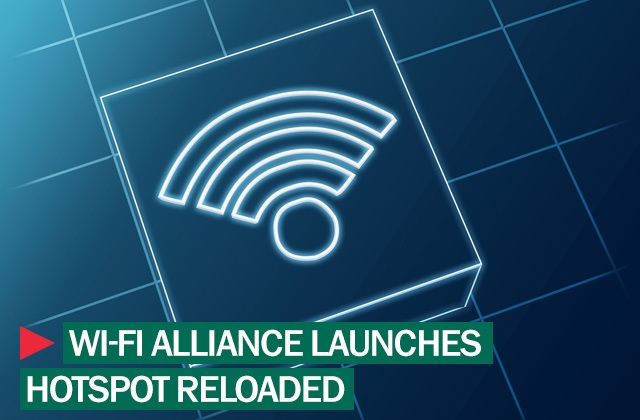The Wi-Fi alliance, an almost absurdly large consortium of communications, technology, and manufacturing companies, has launched an initiative aiming to strengthen the security and reliability public wireless hotspots.
Known as Passpoint, the program strives to make public Wi-Fi connection more seamless and more secure, whether it’s the wireless network in your local coffee shop, at the airport, or the service provider supplied hotspots you come across in major cities (mostly in Europe, but they are increasingly popping up in the U.S. as well).
“Today, for the most part, when we go on a public hotspot we are sending data without protection. With Passpoint the connections are secure and the communication is encrypted”, Wi-Fi Alliance CEO Edgar Figueroa said in an Interview with the IDG News Service.
This could be an exciting breakthrough for the security conscious. As of now, joining a public wireless network, particularly one that’s not password protected, is a dicey proposition, only to be undertaken under the direst of circumstances. And even if you do log into a public network, you’d be plain dumb to sign into anything of value. Thus, the extent of your web-surfing would be to resolve useless arguments with Wikipedia, enjoy yet another mindlessly generic cat video, or watch a gif of some harrowing sports collision.
However, this Passpoint initiative aims to use Hotspot 2.0 technology so that users can trust public networks like they trust their home or business one.
Passpoint will work as a certification program. The Wi-Fi Alliance will grant Passpoint certification to providers that meet the Wi-Fi Alliance Hotspot 2.0 specifications. In their words, Hotspot 2.0 is the underlying technological specification developed by Wi-Fi Alliance members, and is copyrighted and owned by the Wi-Fi Alliance.
Specifically, Passpoint-certified Wi-Fi networks will provide strong WPA2 encryption for all data moving wirelessly from your machine to and through the network. While we are primarily focused on security here, the program boasts connectivity upgrades as well: as certified hotspots proliferate, the providers of them will begin to develop a Wi-Fi roaming feature that will give users wireless Internet access in more places than ever. On top of that, once you are into the Passpoint network, you are in. A device certification program will make it so that your handset or tablet automatically authenticates itself into the network.
That last bit is somewhat concerning depending on how it works. We reached out to the Wi-Fi Alliance for clarification on that matter, but they did not respond to the request for comment before the time of publication.
The way I see it, if I understand everything correctly, device Passpoint certification will eliminate the need for password-based authentication into Passpoint-certified networks. It’s not totally clear if devices will automatically connect to these networks nor is it clear how the Wi-Fi Alliance intends to prevent malefactors from creating their own malicious networks with Passpoint certification.
 password authentication
password authentication


 Tips
Tips